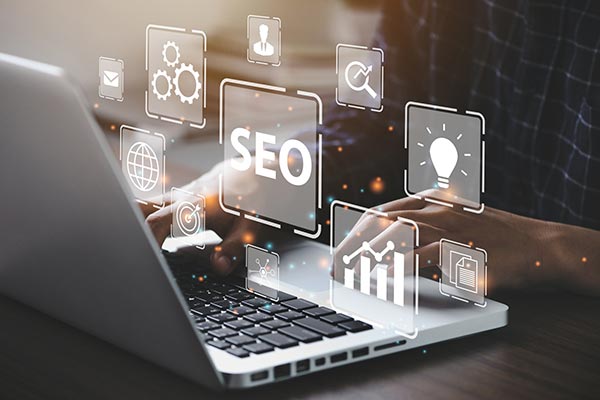Introduction
 In today’s digitally driven marketplace, visibility is the lifeblood of business success. Attracting and engaging your target audience demands a strategic approach, and two prominent tools dominate the digital marketing landscape: Search Engine Optimization (SEO) and Pay-Per-Click (PPC) advertising.
In today’s digitally driven marketplace, visibility is the lifeblood of business success. Attracting and engaging your target audience demands a strategic approach, and two prominent tools dominate the digital marketing landscape: Search Engine Optimization (SEO) and Pay-Per-Click (PPC) advertising.
But with their distinct approaches and nuances, the question arises: Which strategy aligns best with your specific goals?
This article delves deep into the world of SEO and PPC, dissecting their unique advantages and potential drawbacks. We’ll move beyond simplistic metaphors and equip you with a clear understanding of how each tactic can contribute to your overall marketing strategy.
SEO: Cultivating Organic Growth
SEO focuses on optimizing your website and content to rank organically in search engine results pages (SERPs). Imagine it as carefully cultivating a fertile garden, attracting your target audience through valuable, relevant content that resonates with their search queries. By nurturing this organic growth, you establish long-term visibility and brand authority, fostering a loyal customer base.
PPC: Targeting Visibility with Precision
PPC, on the other hand, offers immediate visibility through paid advertisements. Imagine it as placing strategic billboards on busy highways, directly reaching your target audience with laser-focused messaging. This approach allows for highly targeted campaigns, driving traffic and conversions quickly. However, the cost per click can be significant, and visibility fades as soon as the campaign budget dries up.
Unlocking Synergistic Success
The true power lies in understanding that SEO and PPC are not rivals, but complementary tools. By carefully integrating both strategies, you can create a holistic digital marketing campaign that delivers optimal results. SEO lays the foundation for long-term organic growth, while PPC provides targeted boosts when needed. Imagine using SEO to establish brand awareness and attracting qualified leads, then employing PPC to convert those leads into paying customers.
In the following sections, we’ll delve deeper into the specifics of each strategy, compare their strengths and weaknesses, and explore how to create a winning combination for your unique business needs. Stay tuned for actionable insights and valuable resources to guide you on your digital marketing journey.
Cultivating Organic Growth: Demystifying SEO
 The Power of Search Engine Optimization
The Power of Search Engine Optimization
In today’s digital landscape, attracting and engaging your target audience online is crucial for business success. Search Engine Optimization (SEO) plays a vital role in achieving this goal by enhancing your website’s visibility in search engine results pages (SERPs). By understanding and implementing effective SEO strategies, you can cultivate organic growth, attract qualified leads, and ultimately, drive sustainable business performance.
Core Principles of SEO:
SEO focuses on optimizing your website and content to rank organically in SERPs. This involves aligning your content with user search intent, ensuring technical accessibility, and establishing your website’s trustworthiness and authority. Ultimately, the goal is to provide a seamless user experience and valuable information, signaling to search engines that your website deserves a prominent position in relevant search results.
Benefits of Implementing SEO:
- Organic Traffic: SEO attracts visitors through unpaid search results, offering a cost-effective and sustainable source of website traffic compared to paid advertising.
- Long-Term Results: Unlike temporary boosts from paid campaigns, SEO efforts build lasting visibility and credibility, leading to consistent organic traffic over time.
- Brand Building: Ranking high in SERPs increases brand awareness and establishes your website as a trusted source of information within your industry.
- Targeted Audience: By optimizing for relevant keywords, you attract visitors actively searching for products or services like yours, increasing conversion rates and potential leads.
Key Elements of an SEO Strategy:
- Keyword Research: Identify the terms and phrases your target audience uses to search for information related to your offerings. This forms the foundation for content creation and optimization.
- Content Optimization: Create high-quality, informative content that aligns with your chosen keywords and resonates with your target audience. Ensure content is well-structured, engaging, and provides genuine value.
- Technical SEO: Optimize the technical aspects of your website for search engines, including mobile-friendliness, fast loading speeds, clear website structure, and crawlability.
- Link Building: Earn backlinks from high-quality websites relevant to your industry. These backlinks act as votes of confidence, signaling to search engines that your website is trustworthy and valuable.
Embracing a Strategic Approach:
SEO requires a long-term commitment and ongoing optimization based on data and evolving search engine algorithms. By understanding the core principles and implementing these key elements, you can unlock the power of organic growth and lay the foundation for sustainable business success in the digital world.
Stay tuned for Chapter 3, where we’ll delve into the dynamic world of PPC advertising and explore how it can complement your SEO efforts for a comprehensive digital marketing strategy.
Leveraging the Power of PPC Advertising
 In our previous chapter, we explored the intricacies of SEO and its ability to cultivate organic growth. Now, let’s delve into the dynamic world of Pay-Per-Click (PPC) advertising, a complementary tool that empowers businesses to achieve targeted reach and immediate results.
In our previous chapter, we explored the intricacies of SEO and its ability to cultivate organic growth. Now, let’s delve into the dynamic world of Pay-Per-Click (PPC) advertising, a complementary tool that empowers businesses to achieve targeted reach and immediate results.
Understanding PPC Advertising:
PPC advertising operates on a simple principle: you pay a fee each time someone clicks on your ad. This allows for highly targeted campaigns, reaching specific audiences based on demographics, interests, and online behavior. Popular PPC platforms include Google Ads, social media advertising platforms like Facebook and Instagram Ads, and display advertising networks that reach users across various websites.
Benefits of PPC Advertising:
- Targeted Reach: Unlike SEO, which attracts users organically, PPC allows you to directly target specific audiences with laser precision, maximizing campaign effectiveness.
- Fast Results: PPC campaigns deliver immediate visibility, driving traffic and conversions quickly, ideal for time-sensitive promotions or product launches.
- Measurable Performance: With detailed campaign reporting and conversion tracking, you can precisely measure the return on investment (ROI) of your PPC efforts.
- Campaign Flexibility: PPC campaigns offer remarkable flexibility. You can adjust budgets, target audiences, ad formats, and messaging in real-time, optimizing performance based on data insights.
Types of PPC Campaigns:
- Search Ads: Appear in search engine results pages (SERPs) when users search for relevant keywords, driving targeted traffic directly to your website.
- Display Ads: Banner ads displayed on various websites across the internet, raising brand awareness and driving traffic to your landing pages.
- Remarketing: Target ads to users who have previously interacted with your website or mobile app, encouraging them to return and complete desired actions.
- Shopping Ads: Showcase product listings with images and prices directly in search results, driving qualified leads interested in specific purchases.
Choosing the Right Strategy:
The optimal PPC approach depends on your specific business goals, target audience, and budget. Carefully consider your objectives, target demographics, and campaign budget when selecting the most suitable PPC platforms and campaign types. Remember, PPC and SEO work best when employed synergistically. SEO lays the foundation for long-term organic growth, while PPC provides targeted boosts and immediate visibility, creating a holistic digital marketing strategy for sustainable success.
Stay tuned for Chapter 4, where we’ll explore how to integrate SEO and PPC seamlessly and unlock the full potential of your digital marketing efforts.
Choosing Your Digital Path: SEO vs. PPC
In the previous chapters, we explored the distinct landscapes of SEO and PPC advertising. Both offer powerful tools for businesses to navigate the digital world, but understanding their unique strengths and weaknesses is crucial for making informed marketing decisions.
Comparing SEO and PPC:
| Aspect | SEO | PPC |
| Cost | Primarily organic growth, minimal direct costs. Requires investment in content creation and technical expertise. | Paid advertising model. Costs vary based on platform, targeting, and campaign performance. |
| Time Commitment | Long-term strategy. Requires ongoing content creation, optimization, and technical maintenance. | Offers quicker results. Campaign setup and optimization require time investment, but results can be seen within days. |
| Targeting Options | Targets users based on search queries and website content. | Highly targeted based on demographics, interests, online behavior, and specific audience segments. |
| Results Timeline | Builds visibility and traffic gradually over time. Can take months to see significant results. | Offers immediate visibility and traffic once campaigns are launched. |
Optimizing Your Strategy:
Choosing the right strategy depends on your specific business goals and needs. Here’s a breakdown of when each approach shines:
Long-Term Goals:
- SEO: Ideal for building sustainable, organic growth and brand authority. Perfect for establishing your website as a trusted resource within your industry.
- PPC: Can be used strategically to support long-term goals by driving targeted traffic to SEO-optimized landing pages and nurturing leads over time.
Short-Term Goals:
- PPC: Delivers immediate visibility and results, making it ideal for time-sensitive promotions, product launches, or campaigns with specific deadlines.
- SEO: While not suited for immediate results, SEO efforts can contribute to long-term success that complements short-term PPC campaigns.
Brand Awareness:
- SEO: Organic rankings and high-quality content build brand awareness organically, establishing your brand as a thought leader in your niche.
- PPC: Display advertising and targeted campaigns can raise brand awareness quickly and reach a broader audience.
Lead Generation:
- SEO: Optimized content attracts qualified leads searching for specific information or solutions, improving conversion rates.
- PPC: Highly targeted campaigns can reach users with purchase intent, driving qualified leads directly to your website or landing pages.
Specific Audience Targeting:
- PPC: Offers unmatched precision in targeting specific user segments based on demographics, interests, and online behavior.
- SEO: While targeting is less granular, SEO can attract qualified leads through relevant keywords and content optimization.
The Power of Synergy:
Remember, SEO and PPC are not adversaries but complementary tools. By understanding their unique strengths and limitations, you can create a holistic digital marketing strategy that leverages both approaches for maximum impact. Utilize SEO for long-term organic growth and brand building, while strategically employing PPC for targeted campaigns and immediate visibility.
Stay tuned for Chapter 4, where we’ll delve into the practical steps of crafting and implementing a winning digital marketing strategy that integrates SEO and PPC seamlessly.
Unleashing the Synergy: Combining SEO and PPC for Maximum Impact

In our previous chapter, we explored the distinct strengths and weaknesses of SEO and PPC. Now, let’s unlock the true power of digital marketing by understanding how these strategies can be combined into a potent force for growth.
Building a Holistic Strategy:
Imagine a digital marketing landscape where SEO lays the foundation for long-term organic growth, attracting qualified leads through valuable content and high rankings. Now, picture PPC strategically placed on top, driving targeted traffic to those optimized landing pages and amplifying brand awareness. This synergy is the essence of combining SEO and PPC for maximum impact.
Examples of Complementary Actions:
- PPC Driving Traffic to SEO-Optimized Pages: Leverage PPC campaigns to target specific keywords and direct interested users to landing pages optimized for those terms. This increases conversion rates as users land on relevant content aligned with their search intent.
- SEO Building Brand Awareness for PPC Campaigns: High organic rankings and informative content establish your brand as a trusted authority. This translates into increased click-through rates and improved conversion potential for your PPC ads.
- Leveraging PPC Insights for SEO: Analyze PPC data to identify high-performing keywords and user behavior. Use these insights to inform your keyword research and content optimization efforts, further refining your SEO strategy.
Beyond the Duo:
While SEO and PPC form the core of a robust digital marketing strategy, consider integrating other channels for a comprehensive approach:
- Content Marketing: High-quality blog posts, articles, and infographics attract organic traffic, establish thought leadership, and support both SEO and PPC efforts.
- Email Marketing: Foster relationships with website visitors and nurture leads generated through SEO and PPC campaigns, driving conversions and building customer loyalty.
- Social Media Marketing: Engage with your target audience on social media platforms, build brand awareness, and drive traffic back to your website, further supporting SEO and PPC goals.
The Key to Success:
Remember, there’s no one-size-fits-all approach. Carefully evaluate your business goals, target audience, and budget to determine the optimal mix of SEO, PPC, and other channels. Continuously monitor campaign performance, analyze data, and adapt your strategy for ongoing optimization and maximum impact.
By embracing the synergy of SEO and PPC, and integrating them with other digital marketing channels, you can unlock a powerful ecosystem that drives sustainable growth, attracts qualified leads, and propels your business to success in the ever-evolving digital landscape.
Charting Your Digital Course: Conclusion
 Throughout this journey, we’ve explored the intricate landscapes of SEO and PPC, unveiling their distinct strengths and potential to drive business growth.
Throughout this journey, we’ve explored the intricate landscapes of SEO and PPC, unveiling their distinct strengths and potential to drive business growth.
While they may appear as rivals, the true power lies in recognizing them as complementary tools within a holistic digital marketing strategy.
Key Takeaways:
- SEO: Cultivates organic growth through high-quality content, technical optimization, and building website authority. Offers long-term visibility and brand building, but requires patience and ongoing optimization.
- PPC: Delivers targeted reach and immediate results through paid advertising. Ideal for specific campaigns, lead generation, and amplifying brand awareness. Requires ongoing budget allocation and campaign management.
Choosing Your Path:
The optimal approach hinges on your specific business goals, target audience, and budget. Carefully consider:
- Long-term vs. short-term goals: SEO excels in long-term organic growth, while PPC offers immediate visibility for short-term campaigns.
- Brand awareness vs. lead generation: SEO builds brand authority, while PPC targets specific audiences for lead generation.
- Cost considerations: SEO requires investment in content creation and technical expertise, while PPC demands ongoing budget allocation.
Remember: The most powerful strategy often lies in combining SEO and PPC. Leverage SEO for long-term organic growth, and strategically utilize PPC to drive targeted traffic and amplify your brand message.
Beyond the Basics:
This exploration has provided a foundation for understanding SEO and PPC. As you embark on your digital marketing journey, remember:
- Continuous Learning: The digital landscape is dynamic, demanding ongoing learning and adaptation. Explore online resources, attend industry events, and stay updated on the latest trends and best practices.
- Data-Driven Decisions: Track campaign performance, analyze data insights, and use them to refine your strategies for continuous improvement.
- Seek Expert Guidance: Consider collaborating with experienced digital marketing professionals to develop and implement a customized strategy aligned with your specific needs and goals.
Remember, the digital world offers immense opportunities for growth and engagement. By understanding the power of SEO and PPC, choosing the right strategy, and continuously learning, you can navigate this dynamic landscape and propel your business to success.
May your digital journey be one of discovery, growth, and lasting success!
Ready to unlock the full potential of your digital marketing?
Take your first step towards success with a free consultation. Our experienced team will assess your specific needs and goals, develop a customized strategy, and answer any questions you may have.
Don’t miss out on this valuable opportunity to take your digital marketing to the next level. Schedule your free consultation today!
Click here to book your free consultation.


